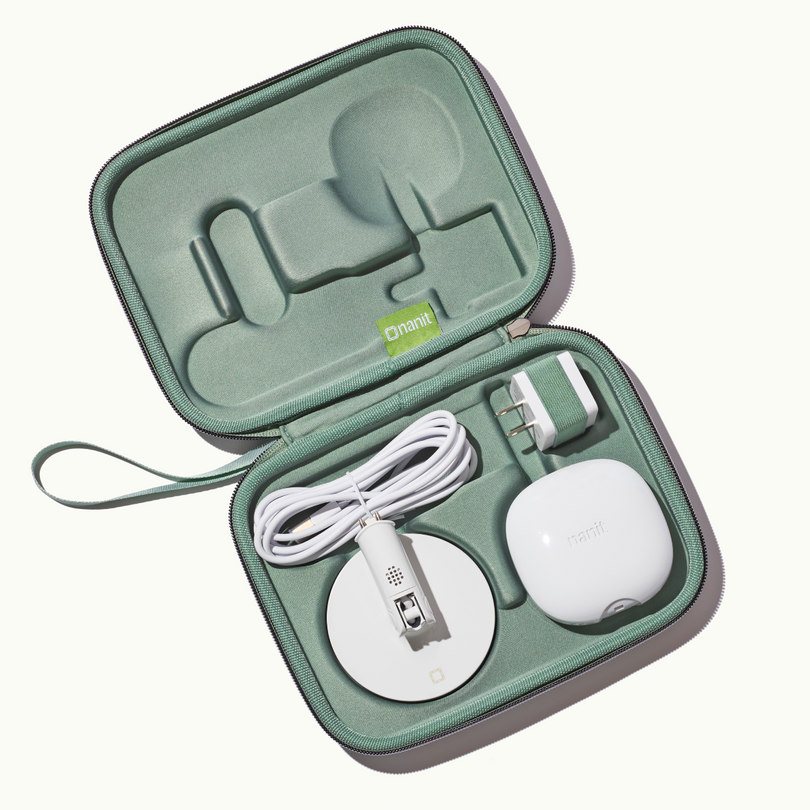11 Month Old Nap Schedule:
At this age, your baby will likely be pretty consistent at taking two naps a day. Every baby will progress at their own pace, depending on their unique preferences and growing bodies, so if your baby is starting resist one of these naps, hang in there! Around 11 months, they’ll probably be napping for 2-4 hours during the day, but you may be starting to notice a shift in their napping patterns. This napping change may happen sooner if a significant shift, such as a new sibling or move, has occurred. An indicator that your baby is ready to transition into one nap (usually in the afternoon) a day is if they begin fighting their morning nap on a consistent basis, for two weeks. If this occurs, it’s fine to allow them to skip that morning nap. Because this transition may lead to irritability and grumpiness initially, try incorporating more “quiet time” into their day, where they engage in peaceful activities that allow their body to rest, even though they’re not asleep.
11 Month Old Feed Schedule:
Babies differ in their solid food preferences, with some loving everything that is placed in front of them and others showing pickiness about various textures and tastes. Some children at this age may have a hard time with the whole solid food endeavor, and that’s totally fine. But, whatever category your baby falls into, it’s important to help them attempt 3 meals a day.
Middle of the night feeds should be gone at this point. Almost all babies are capable of lasting through the night without food — what they need more than anything at this age, is a good night’s rest! Your baby will likely still be taking about 4 breast milk or formula feeds a day. Between 12 and 14 months, you may wish to switch your baby to cow’s milk instead of formula or breast milk, though you’re welcome to keep breastfeeding.
How Long Should An 11 Month Old Sleep?
At 11 months, your baby will probably still be sleeping around the same amount of time overall as they were at 10 months. In the evenings, you can expect your little one to sleep for 11-12 hours.
Routine, dependable transitions, and consistency now become more important as your baby’s gross motor skills, social awareness, language awareness, and more begin to increase. This stability supports your baby in making sense of their world and being able to get the sleep they need. Although your baby is not able to consciously comprehend why they need so much sleep, their physical and mental development help to push them in the direction of slumber.
Significant milestones also begin to occur during this time, such as learning to crawl or stand. While these milestones are exciting, they might also throw a wrench in your baby’s sleep. The best way to help your baby manage these sleep disruptions is through consistency. Be aware though, your baby may quickly realize that this is a game — if they stand up, and your response is to rush in and sit them down, they’ll know to continue to do that. Avoid this game by showing them how to sit down (instead of just picking them up) and giving them the time and space to figure it out on their own and offer plenty of opportunities throughout the day for them to explore their new skills. Lots of practice during the day should make these milestones no big deal.
11 Month Old Schedule
|
Wake and Milk Feed 6:30 AM |
Your baby might be hungry since you probably didn't feed overnight, so this feed will be a big one. |
|
Breakfast 7:30 AM |
Get creative here with a fun solid breakfast that your baby will love. Maybe try out oatmeal, avocado on toast fingers, toast fingers with butter, roasted cherry tomatoes, scrambled eggs or whole wheat pancakes cooked with blueberries (get those antioxidants!). |
|
Nap time 8:30 AM - 9:30 AM |
Your baby may be ready for this nap closer 15 to 30 minutes later. That's totally fine — just make sure they wake up no later than an hour after this time, if they don't wake up on their own. |
|
Milk Feed 10:30 AM |
If your baby is more comfortable with solid foods, they may not be as hungry for milk. Time to start cutting back. |
|
Lunch 12:00 PM |
Your baby is fairly comfortable with all kinds of flavors and textures during this solid lunch, growing more and more comfortable self-feeding. |
|
Nap time 12:30 PM - 2:30 PM |
If the little one had a longer morning nap, they may resist this nap at first. Fear not — they will eventually fall asleep for a nice long afternoon nap. Take some time for yourself! |
|
Milk Feed 2:30 PM |
Your baby may need to be fed milk once they wake up from their long nap. |
|
Dinner 5:00 PM |
A variety of flavors and textures for this solid dinner will help your baby continue to get familiar with different flavors and textures — with your encouragement, your baby is self-feeding more and more! |
|
Bath 5:45 PM |
Splish-splash! It's time for a bath! |
|
Bottle and Book 6:15 PM |
It's okay if your baby is less hungry for a milk feed at this point — they're probably still full from their dinner! Offer a song or a story before bed to encourage a consistent routine. |
|
Bed time 6:30 PM |
Time for bed. Sweet Dreams! |
Note: These are general guidelines based on the recommendations of our pediatric sleep advisors. All babies are different and your child may not be able to strictly adhere to this schedule. Always use your best judgment as a parent when setting your child's schedule.














